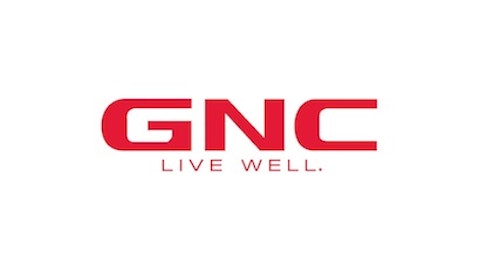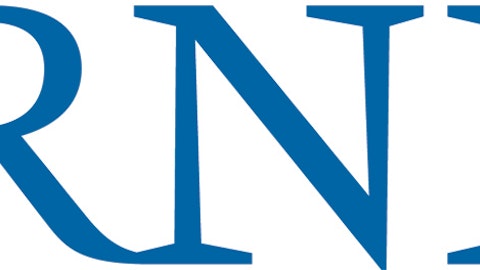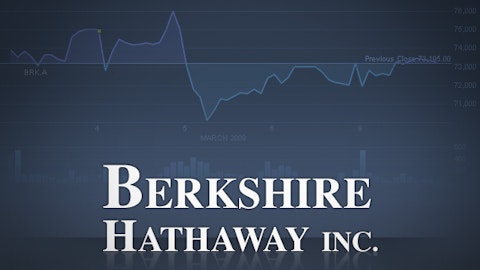
Icahn’s Portfolio
Icahn Enterprises’ business model is similar to that of Warren Buffett’s firm Berkshire Hathaway Inc. (NYSE:BRK.A) – it doesn’t actually produce a product, but rather invests in companies across a variety of industries. In other words, the company resembles a mutual or hedge fund – a basket of investments that are actively managed by its CEO.
Let’s take a look at how the two companies have invested in similar and different industries.
| Invests in… | |
| Icahn Enterprises | Autos, Biotech, Railroads, Food Packaging, Real Estate, Regional and National Energy, Home Fashion, Metals… |
| Berkshire Hathaway | Autos, Retailers, Railroad, Banks, Jewelers, Regional and National Energy, Candy and Snacks, Insurance, Newspapers… |
While the two companies invest in some similar businesses, it would be incorrect to simply call Carl Icahn a lesser Warren Buffett. Icahn, being an ‘activist’ investor, actively invests heavily in troubled companies which he believes are held back by stagnant management, using his weight to force changes in leadership or execution. Meanwhile, Warren Buffett invests in fundamentally cheap companies and plays a more passive waiting game.
The Foolish Fundamentals
Companies such as Icahn Enterprises and Berkshire Hathaway are extremely hard to value with forward-looking metrics such as forward P/E and PEG ratio, since it is nearly impossible to forecast the value of all its investments as well as predict upcoming divestments at the same time. However, we can easily value its past performance. Let’s see how Icahn measures up to Berkshire fundamentally.
| Price to Earnings (ttm) | Price to Sales (ttm) | Price to Book (ttm) | Debt to Equity | Return to Equity (ttm) | |
| Icahn Enterprises | 11.60 | 0.57 | 1.67 | 86.18 | 14.97% |
| Berkshire Hathaway | 18.73 | 1.60 | 1.34 | 33.06 | 7.84% |
Advantage | Icahn | Icahn | Berkshire | Berkshire | Icahn |
Source: Yahoo Finance
Icahn actually puts up a strong fight against Berkshire, and is fundamentally stronger in most categories. However, Berkshire still beats out Icahn with lower debt levels and a healthier price-to-book valuation.
Meanwhile, Icahn has been a stronger growth stock over the past five years. Although revenue growth has been overwhelmingly positive, earnings per share growth has been sluggish at both companies.

BRK.A Revenue TTM data by YCharts
Now.. show me the money! (Or depositary units!)
Icahn Enterprises originally paid $0.40 cash per share plus $1.00 in depositary units, but the newly introduced $4.00 annual dividend will be paid in either cash or depositary units. Receiving depositary units would be the equivalent of a DRIP (dividend reinvestment program) at a brokerage, where cash dividends are automatically used to purchase more shares of the same company.
Shareholders have until March 14 to decide on the form of the payment they prefer, but if all of Icahn’s shareholders elected for a cash payment, the company would need to pay out $420 million in dividends. As a vote of confidence for his own company, Icahn stated that he would accept depositary units instead of cash for his 93% stake of the company.
When activists clash!
While Carl Icahn is best known for his widely publicized battles with the boards of Netflix, Inc. (NASDAQ:NFLX), The Clorox Company (NYSE:CLX) and Biogen Idec Inc. (NASDAQ:BIIB), he has also clashed with other activist investors on multiple occasions.
Icahn’s most recent foe is William Ackman, the activist investor who is waging a personal war against Herbalife Ltd. (NYSE:HLF).
William Ackman has claimed that Herbalife, a multi-level marketer of nutritional and skincare products, is a ‘pyramid scheme’ running on inflated numbers. Ackman has been so certain of his accusations that he once held a three-hour presentation denouncing the company, and launched a web page dedicated to his arguments. Icahn disagrees with Ackman and believes that the company has long-term growth potential.
Both men are certainly putting their money where their mouths are. Ackman’s hedge fund, Pershing Square Capital, disclosed that it was shorting approximately $1 billion in Herbalife shares. Icahn responded by buying a 13% stake in the distressed company, which has a total market value of $4 billion.
Regardless of Herbalife’s financial honesty or the sustainability of its multi-level marketing system, the company’s numbers are financially strong, as seen it the chart below.

HLF Revenue TTM data by YCharts
What’s more, Herbalife recently beat earnings estimates handily for its fourth quarter, posting record growth. It also upped its guidance for fiscal 2013.
Yet I firmly believe Carl Icahn’s investment has less to do with Herbalife’s fundamentals and more about forcing shorts mimicking Ackman, a widely followed investor, to panic and cover their positions.
‘Short squeezes’ – where traders shorting the stock rush to repurchase, or cover, their positions, often cause huge rallies. Indeed, news of Icahn’s initial investment initially caused the stock to rally more than 20%.
The Foolish Bottom Line
In the end, investing in holdings conglomerates such as Icahn Enterprises and Berkshire Hathaway have less to do with macro factors and more about your faith in the CEO. Just as some mutual and hedge funds are actively managed by star portfolio managers, Carl Icahn and Warren Buffett have their own approaches to maximizing shareholder value. However, for dividend investors interested in following one of these star investors, Icahn Enterprises, now offering nearly 5% in dividends, is clearly a more attractive choice than Berkshire Hathaway, which does not pay one at all.
The article Carl Icahn Wants to Show You the Money originally appeared on Fool.com and is written by Leo Sun.
Copyright © 1995 – 2013 The Motley Fool, LLC. All rights reserved. The Motley Fool has a disclosure policy.





